ValAi, PREPD and Airspeeder among the SA tech world’s next big things
A flying car Grand Prix Series, nanosatellites, artificial intelligence ... meet the visionaries behind some of the state’s fastest-growing tech companies.
SA Business
Don't miss out on the headlines from SA Business. Followed categories will be added to My News.
There’s a palpable buzz among Adelaide’s start up community.
Where a few short years ago the conversation around fast-growing companies might have focused on small firms – a handful of people getting together to launch an idea – these days it’s just as likely to include global success stories like Tobi Pearce and Kayla Itsines’ Sweat and Antony Ceravolo’s Sine.
Both companies were sold for princely sums in the past couple of years – $400m in the case of Sweat – providing an inspiration to others looking to reach the coveted “unicorn” status, conveyed on a company valued at more than a billion dollars.
Sweat and Sine are in good company, with a large cohort of firms looking to emulate or surpass their success.
We’ve looked at some of the likely contenders over the next few years.
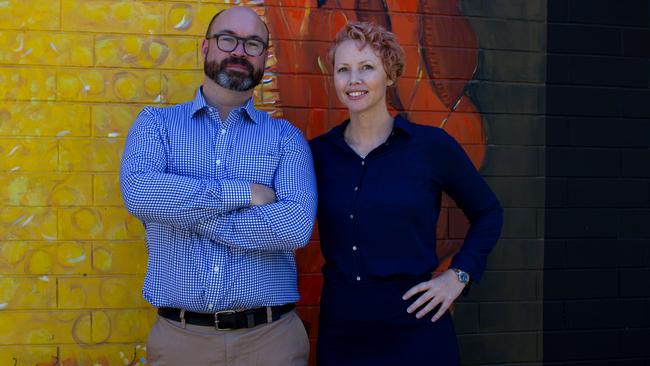
ValAi
After impressing some of the world’s largest banks with its sustainability valuation platform, local start-up ValAi is in talks with potential investors about its ambitious plans.
The platform, known as Greenhouse, is designed to encourage homeowners to invest in sustainability upgrades, such as smart meters, solar and batteries, by measuring and reporting the impact of sustainability performance on a property’s value.
It’s the brainchild of former Conservation Council SA general manager Allys Todd and property valuer Tom Reed, who have been developing the platform over the past two years.
In November, Greenhouse took out a global competition run by NAB, Canada’s CIBC, Brazil’s Itau Unibanco and the UK’s NatWest to encourage innovation in financial services.
The company has since been working with NAB, and AWS (Amazon Web Services) Innovation Advisory, as it prepares for an official launch later this year.
Ms Todd believes the platform will encourage financial institutions to lead the world’s energy transition by recognising both the environmental and financial benefits of sustainable properties.
“We really do see that this is a pivotal time for the global economy to be recognising our net zero targets, and to be able to work directly with the financiers and engage their customers is a tremendous opportunity for us to fast-track the globe’s transition to net zero.”
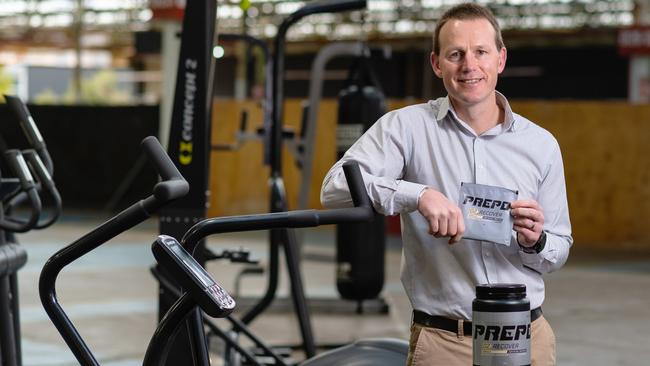
PREPD
After a soft launch in the US at the end of last year, PREPD is looking for investors to help build its brand in the lucrative sports nutrition market.
The sports drink was launched in 2018, acting as a two-step hydration enhancer consumed 6-12 hours before, and then after exertion.
It has been used by elite cricketers, AFL teams, professional cyclists, A-League soccer teams, SA Olympian Izzi Batt-Doyle and Olympic hurdler Michelle Jenneke, who was recently brought on as a global brand ambassador. She has more than 1.6 million followers on social media.
PREPD is currently looking to raise $1m via equity crowd-funding to support its move into the US, which chief executive Andrew Perry believes could be a game-changer for the business.
“Of the 330 million people that live in the US, 23 per cent of them sit above the average physical activity guidelines for the US, which is 150 to 300 minutes of moderate to intense exercise per week,” he says.
“If 1 per cent of those were using PREPD twice a week it gives us a near on $400m a year turnover business and that’s why we see the US as such an amazing market.”
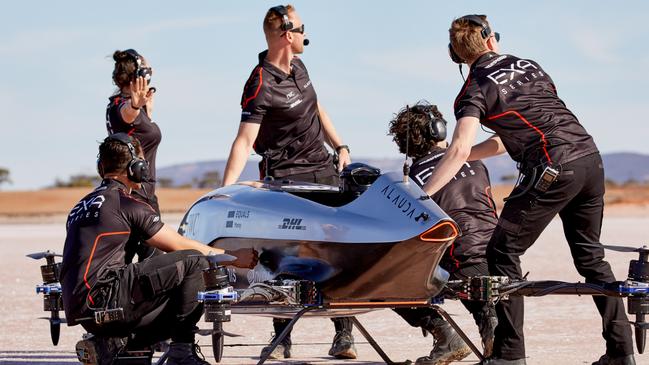
Airspeeder
Electric flying cars, fighting it out in a Grand Prix series at sites around the globe, beamed to an audience potentially in the billions.
It’s the stuff sci-fi movies are made of, but it’s a reality, and it’s being developed right here in Adelaide.
Airspeeder and associated company Alauda Aeronautics have attracted heavyweight sponsors – and a bunch of investors – to back their vision, with companies such as a Swiss watch firm IWC Schaffhausen and DHL signing on. And why wouldn’t you?
With cars being piloted at speeds greater than 150km/h on virtual race tracks, there’s plenty of excitement to be had, and huge potential upside financially.
The companies have attracted staff from the top Formula One marques to Adelaide to fine tune their vehicles, and the aim is to have crewed cars in the not too distant future.
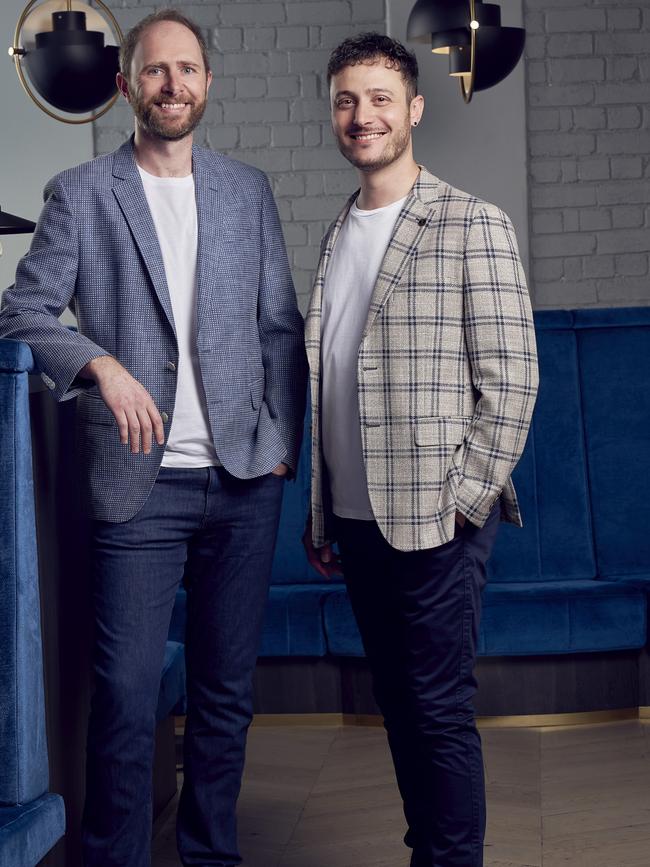
Lumary
Freshly cashed-up and with the backing of tech giant Salesforce, digital health start-up Lumary is forging ahead with an ambitious global expansion.
Tech entrepreneurs Joseph Mercorella and Matthew English established the company in 2017 after identifying a need for new software to manage the complexities of the NDIS.
In a short time the company has grown to about 150 staff, processes more than $2.5bn in NDIS funding for more than 200,000 users each year, and is on track for an 80 per cent increase in revenue this financial year.
And now it has its eyes on the lucrative US market, where it has opened an office in Denver and is in the process of launching a new product for autism therapy providers.
Last year Lumary raised $17m from investors including Salesforce, venture capital firm OneVentures and the SA Venture Capital Fund, to support its expansion.
Mr Mercorella says while major technology companies currently dominate in the US, government reforms are providing opportunities for smaller players such as Lumary.
“Lumary’s position now is that we disrupted the Australian market – let’s do it again.”
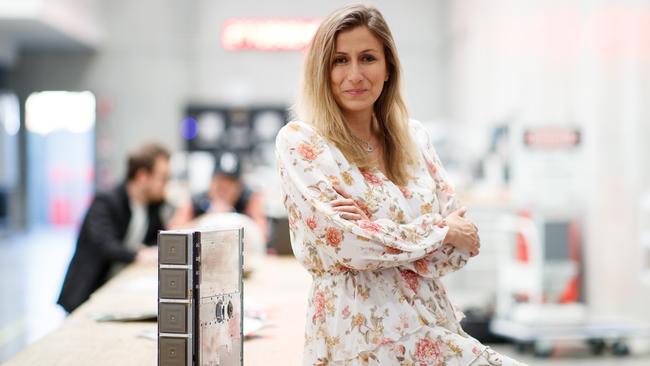
Fleet Space Technologies
Adelaide’s space industry has evolved rapidly in recent years, with Fleet Space Technologies one of the companies at the forefront of the charge.
The western suburbs-based company, headed by Flavia Tata Nardini, recently raised $US26m from investors including Atlassian co-founder Mike Cannon-Brookes’ Grok and Blackbird Ventures, valuing Fleet at $US126m.
Fleet said it would use the money in part to hire about 70 new staff and has recently opened an office in Houston, Texas – the heart of the US space industry.
Fleet, which employs about 100 people, currently has six satellites in space, with plans to build a constellation of about 140, providing Internet of Things connectivity to millions of earth-based devices.
Fleet also intends to build a satellite “hyper factory” in the planned Australian Space Park at Adelaide Airport, which will be the nation’s first dedicated space manufacturing hub.
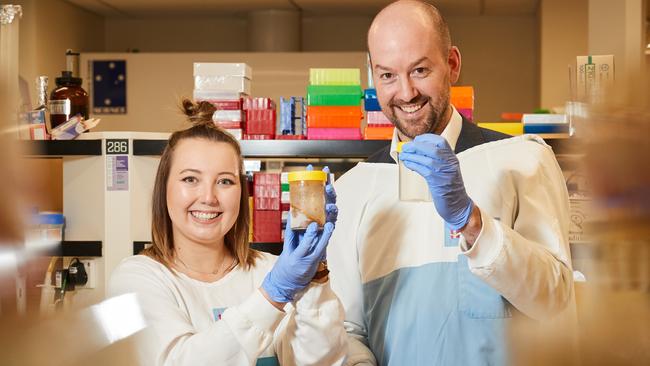
Biomebank
The importance of having a healthy microbiome – the community of microbes which exists on and in all of us – has been demonstrated in recent years and BiomeBank is positioning itself to be a world leader in the field.
The company has a first-generation drug product – to treat two common gut diseases, Clostridioides difficile infection and Ulcerative Colitis.
The biotechnology company is also working on a pipeline of live biotherapeutic products which have the potential to treat many chronic diseases.
BiomeBank recently announced high profile company director Chris Hall – whose career includes a stint as managing director of Blackrock Asset Management – as the new chair of the company, and a Series A funding round is currently in the works.
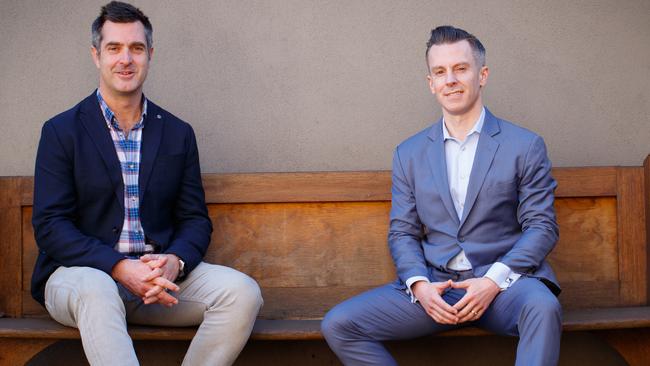
Fivecast
In a short space of time, Fivecast has grown from a small SA start-up to a company with an office in the US and customers around the world, including key US national security agencies.
The digital intelligence company was spun off from the federally funded “Data to Decisions” Cooperative Research Centre in 2017, and now employs more than 70 data scientists, software engineers and other highly skilled staff in Adelaide and Washington DC.
Fivecast software uses artificial intelligence (AI) and machine learning technologies to analyse masses of online data across the surface, deep and dark web to identify threats to national security and public and private organisations.
In the past six months alone, and on the back of a major national security contract in the US, the company has added more than 20 team members to its ranks.
And with the threat of cyber-attacks becoming increasingly more complex and sophisticated, it appears there’s plenty of upside for the Adelaide success story.
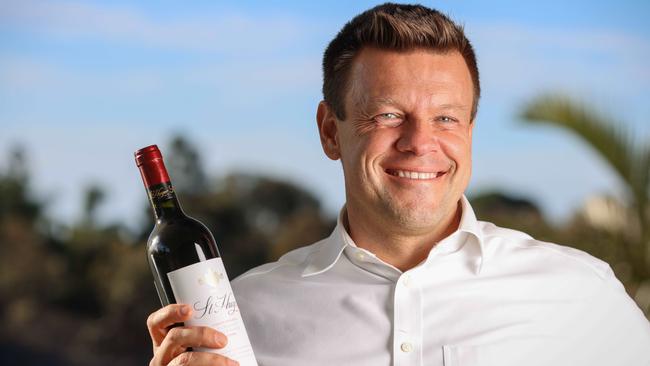
Complexica
The complexity of modern business, be it on a production line or deciding what discounts will turn a promotion into sales, quickly outstrips the human mind’s data processing capability – that’s where Complexica comes in.
The technology company, which is aiming to list on the Australian Securities Exchange in the near to medium term, has signed up top tier global companies such as Pernod Ricard, Pfizer and Dulux Group, on the strength of its artificial intelligence capabilities.
Its technology allows businesses to optimise elements such as manufacturing and pricing, personalise customer interactions and make forecasts about their performance.
Complexica signed up Flinders Ports as a customer, which then invested $5m back into Complexica recently, joining other investors such as listed company Microequities Asset Management, who have poured in $19m in investment collectively to date.
Led by serial entrepreneur Matt Michalewicz, the company now employs close to 100 staff across four offices across Australian and Europe, and has recently moved into a new custom-designed site at West Lakes.
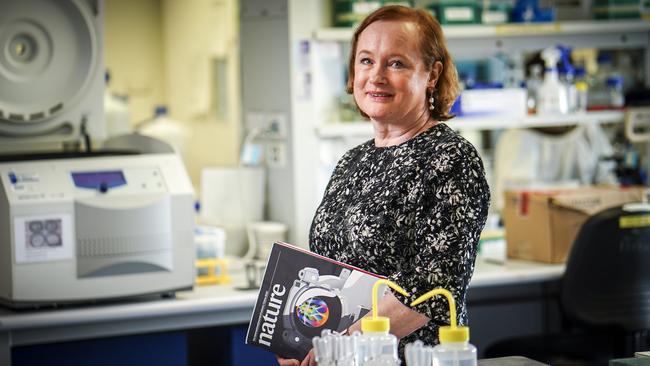
Carina Biotech
The promising biotechnology company secured a big name investor last year as it progresses development of a potentially revolutionary new cancer therapy.
Carina’s focus is on developing an emerging cancer treatment known as chimeric antigen receptor T-cell (CAR-T) therapy. It involves the extraction of “T-cells” (key immune cells) from a patient’s body, modification of the cells in a laboratory, and then reinjection of the cells back into the body where they target and destroy cancer cells.
Last year Carina secured $5.6m from investors to progress to a phase-one clinical trial in patients with advanced colorectal (bowel) cancer later this year, after its preclinical studies showed promising results. Mining magnate Andrew Forrest’s Minderoo Foundation was a cornerstone investor.
While the technology is still at an early stage of development, research conducted last year suggested the T-cell therapy market could reach $US20.3bn by 2028.
And with Carina one of just a handful of Australian companies developing CAR-T therapies, it could be on the cusp of something big.
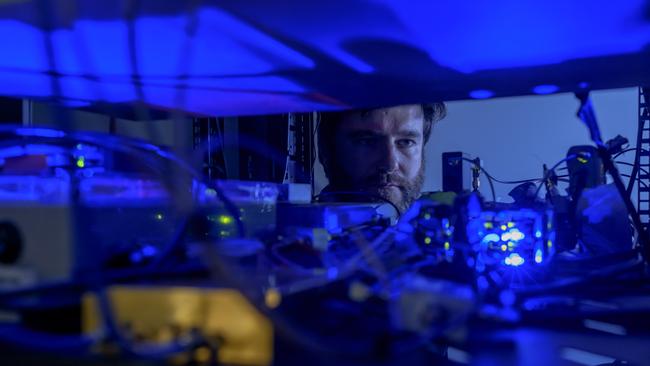
Silentium Defence
From its headquarters in the backstreets of Adelaide’s industrial north, Silentium Defence is developing world-leading technology that promises to revolutionise the way objects in space are monitored from the Earth.
The company is a pioneer in the development of passive radar technology, which uses reflected radio energy already broadcast into the atmosphere from sources such as commercial radio and television stations, to detect and track objects. Because it does not emit energy itself, it can “see without being seen”.
Formed in 2017, Silentium has developed its Maverick family of technologies for a range of applications – from commercial airspace management or drone surveillance, detection and tracking of objects on the battlefield, through to space surveillance.
In July last year the company won a $7.4m contract to deliver its Maverick M-series to the Australian Army for further development and evaluation.
That was followed in December with the launch of its Oculus Observatory near Brownlow in the mid-Murray region – a facility that can track satellites and space debris from the ground using its world-first technology.
The ambition is to eventually build out a network of “wide field of view” observatories globally.



